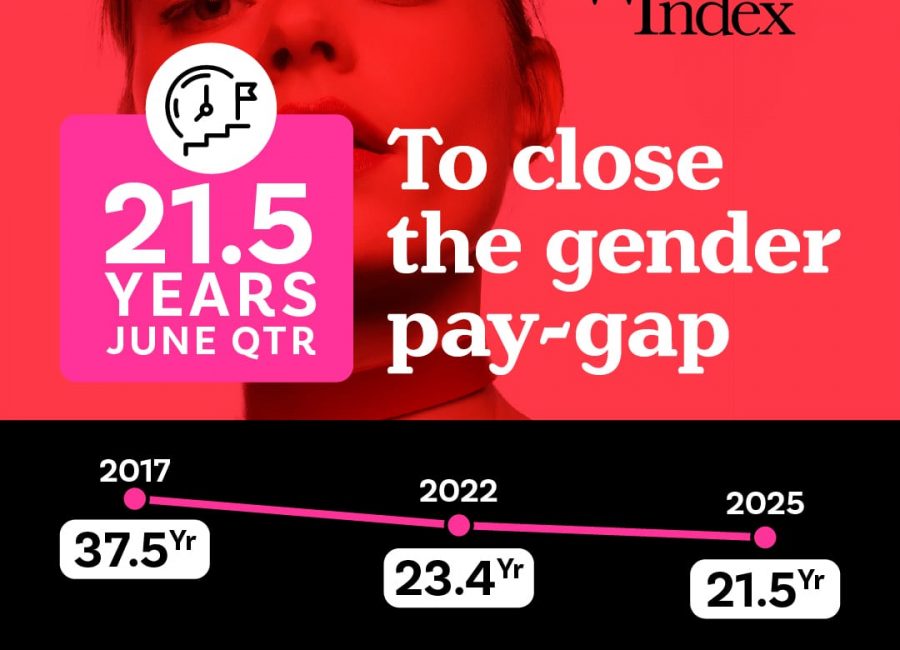The Federal Budget has not delivered enough for women, but it has given us more winners than losers.
The Budget delivered on some expectations of new funding to help first home buyers save for a house deposit, and more money for domestic violence support services.
But when it came to helping the hip pockets of women, who represent just over half the Australian population, not a lot changed on Tuesday night.
“There wasn’t a lot in the Budget that was specific to women,” said HLB Mann Judd Lindzi Caputo.
“What we wanted to see were strategies to help women build their superannuation, that taken into account career breaks and closing gender pay gaps and we didn’t see that.”
In handing down the Budget, Treasurer Scott Morrison described it as “responsible” and one that will allow the government to reduce its debt and stop borrowing to run the economy by 2020-21.
The pursuit of a Budget surplus in the years ahead kept spending reined in with new housing affordability measures for first home buyers, a prime example.
Housing affordability
Under the scheme, first home buyers will be able to make voluntary contributions to their superannuation to save for a house deposit from July 1.
This will be enabled by a salary sacrifice arrangement, and taxed at a lower rate. But the amount you can contribute is capped to a measly $15,000 a year and $30,000 in total.
That’s hardly enough for a deposit on a shoe box in Sydney these days, although it might cover state stamp duty.
Still many single women more so than men are set to benefit given that they are among the most active when it comes to buying their first home.
“I think the whole concept of salary sacrifice could appeal to some people because they can save without having to think about it and their savings could just tick away over time.
“This might be helpful for younger women who want to start saving for a house early,” said Ms Caputo.
Another Budget measure aimed at helping housing affordability was the incentive for people over 65 years to sell their home as they downsize and put up to $300,000 of the sale proceeds into their super fund.
To qualify the person must be over 65 years, and have owned the home for over 10 years as their principle place residence.
As it stands, if a 65 year sold their home and wanted to contribute to super, they would need to meet a work test, but also be limited to a deposit of $100,000 a year into their fund.
“For single elderly women, perhaps those divorced or widowed, they might be in a situation where they want to downsize, and this gives them an incentivised opportunity to do that,” said Ms Caputo.
“It also allows them to minimise their tax and make use of a regulated investment structure which will grow their wealth, rather than using a term deposit.”
Dimitri Diamantes policy manager for the Financial Planning Association of Australia (FPA) said he expects many couples will take up this downsizing incentive because they’d both be eligible to put up to $300,000 each into their respective funds from the sale of the one house.
Health
The Medicare levy is going up which means that so too are taxes.
The levy, which is imposed on most taxpayers, is increasing from 2 per cent to 2.5 per cent in July 2019.
The money is being used to fund improvements to the public health system.
The Treasurer also announced a funding commitment to domestic violence support services.
The Government will provide $3.4 million over two years from 2017-18 to expand the trial of Domestic Violence Units (DVUs) in legal centres around Australia.
The services assist women to access other services such as financial counselling, tenancy assistance, trauma counselling, emergency accommodation, family law services and employment services. The locations of the DVUs will be determined based on areas of need, in consultation with State and Territory Governments.
There will also be an $80 million commitment to Australians suffering from a mental illness, including eating disorders and post natal depression.
It’s likely that much of this funding will be spent on helping women.
While the $80 million sounds significant but the fact that it appears to be contingent on the state’s matching it casts a shadow of doubt on whether it will be realised, so that could be challenging.
Work and business
Given that women are starting small businesses at a faster rate than men, it’s fair to say that many will be able to take advantage of the extended small business tax write off.
The Treasurer announced that the $20,000 immediate tax write off has been extended until June 30 2018.
There will also be funding to deliver targeted support for young parents, mainly mothers, with child care, pre-employment training, financial literacy and numeracy skills and linking up with other education and training opportunities.
Tertiary studies
More women are graduating from university these days with degrees than men, which means that more will be affected by the fact that student debt is about to get more expensive.
The Treasurer confirmed that university fees will rise and students will have to pay 1.8 per cent more from next year, and 7.5 per cent by 2022.
Students loans will also have to be repaid a lot sooner. The income threshold which you will have to start repaying your HECS debt will be reduced to $42,000 from $55,000 as of July next year.












